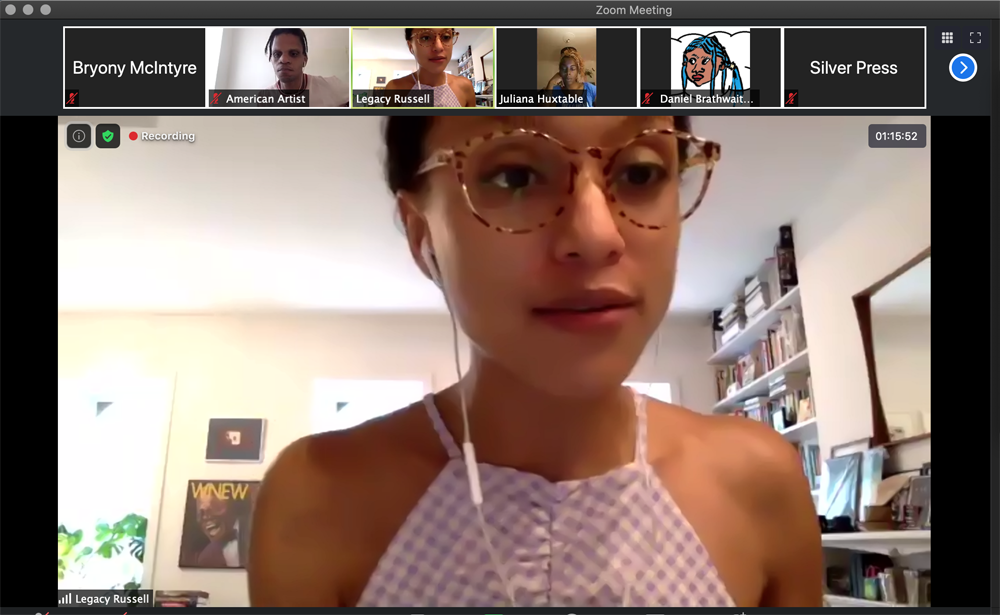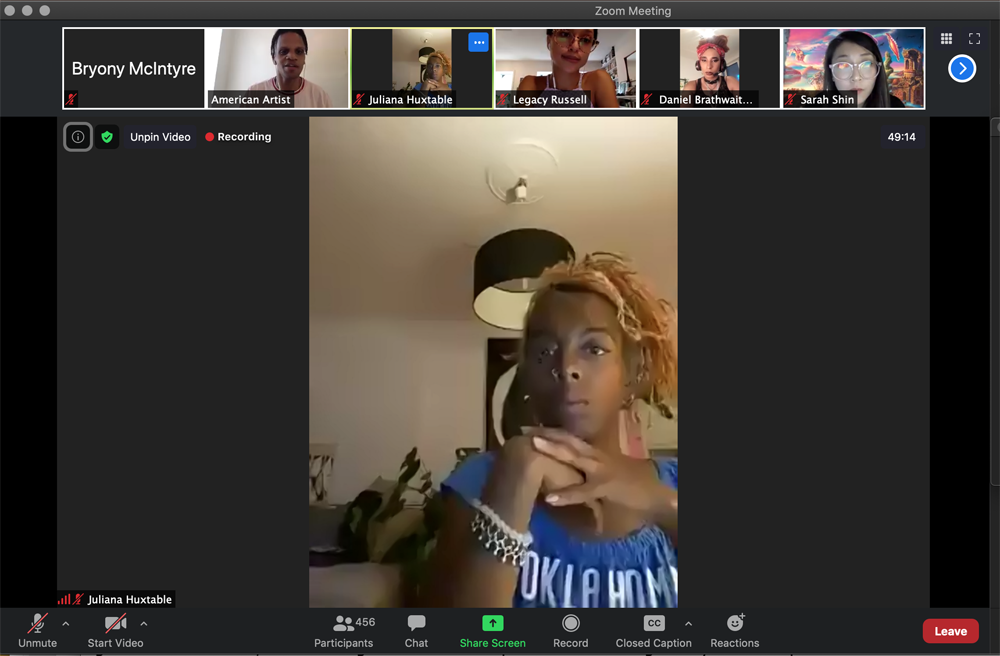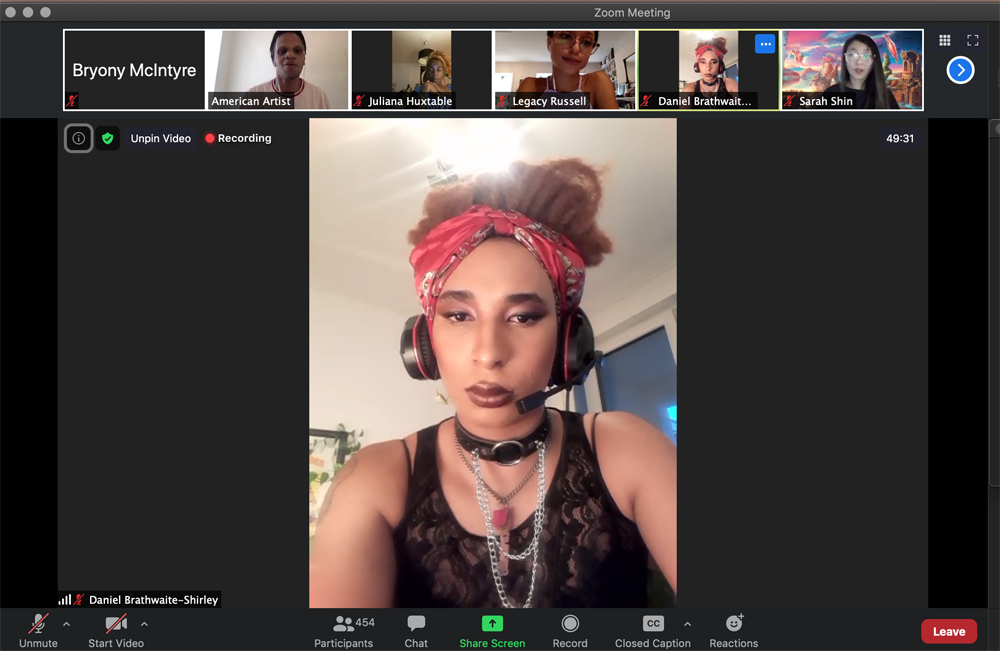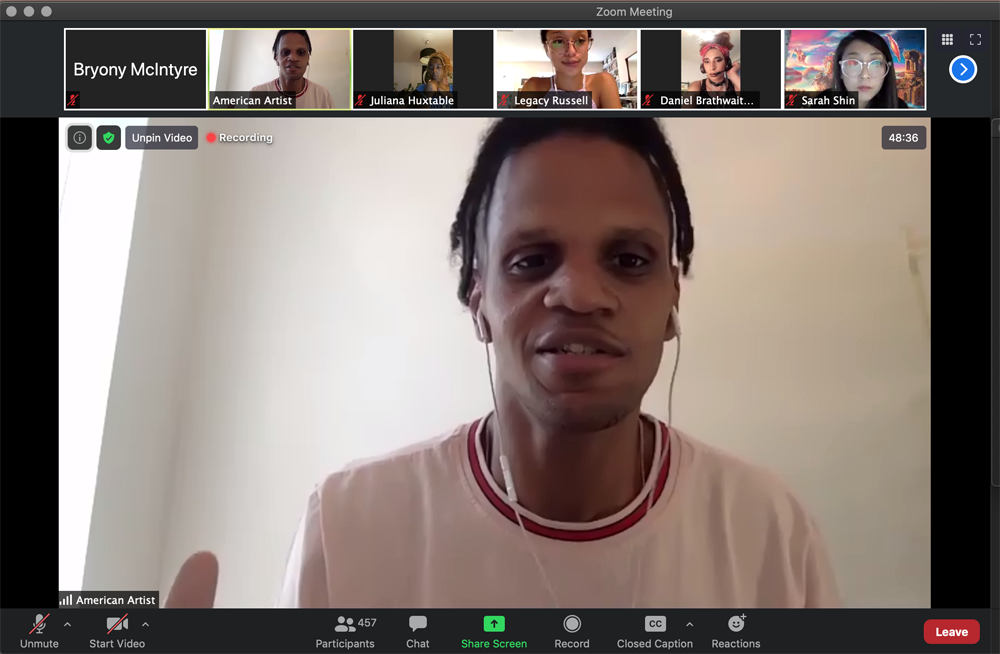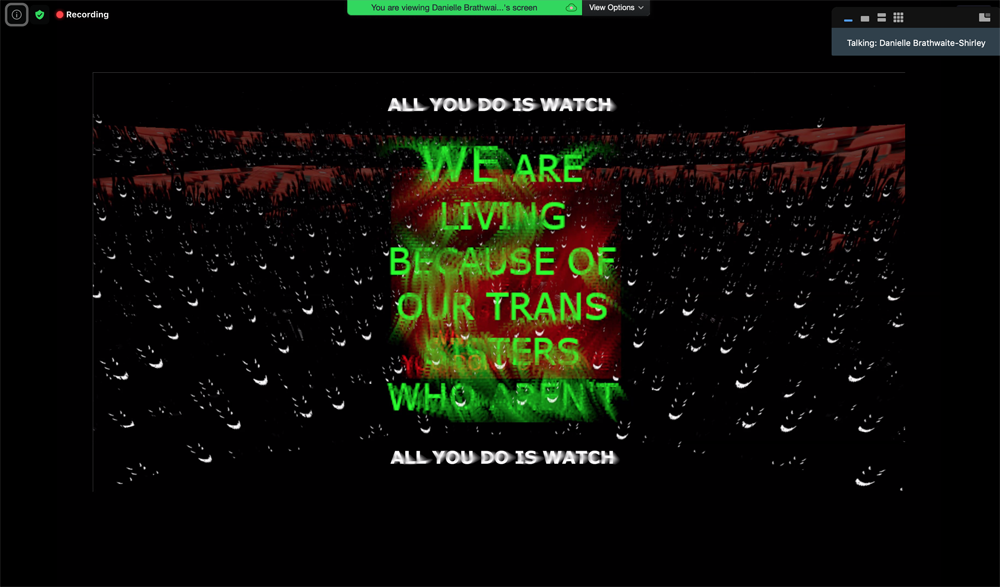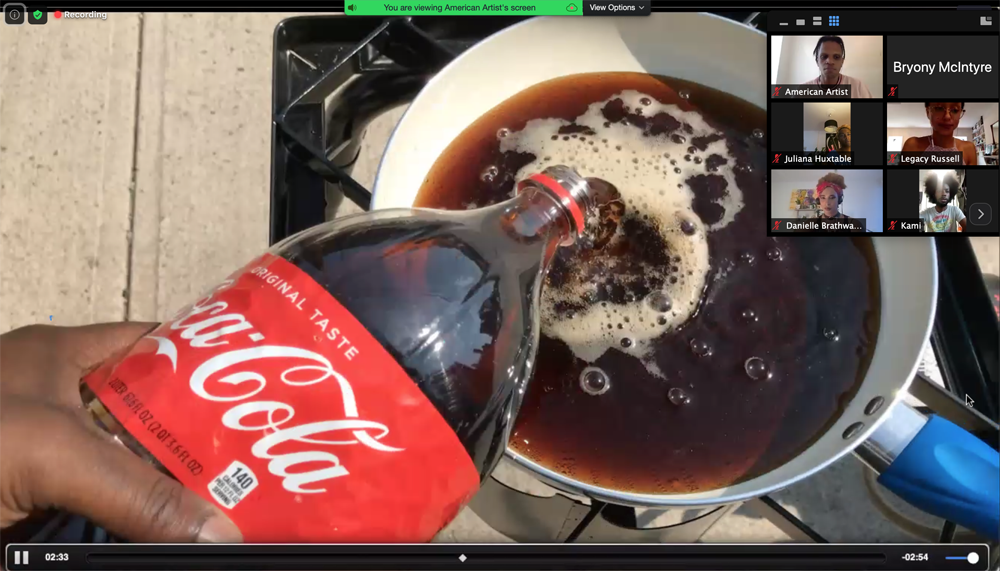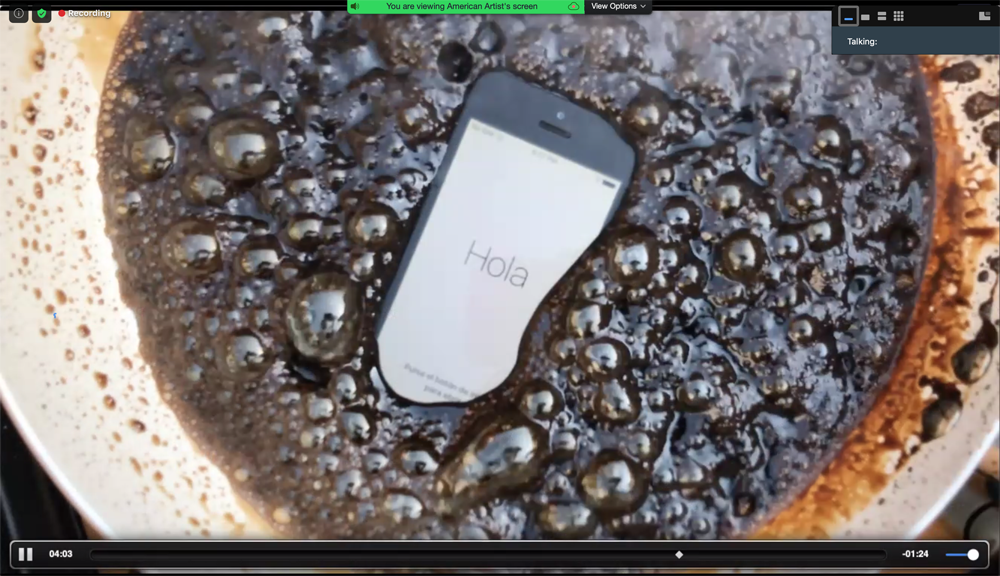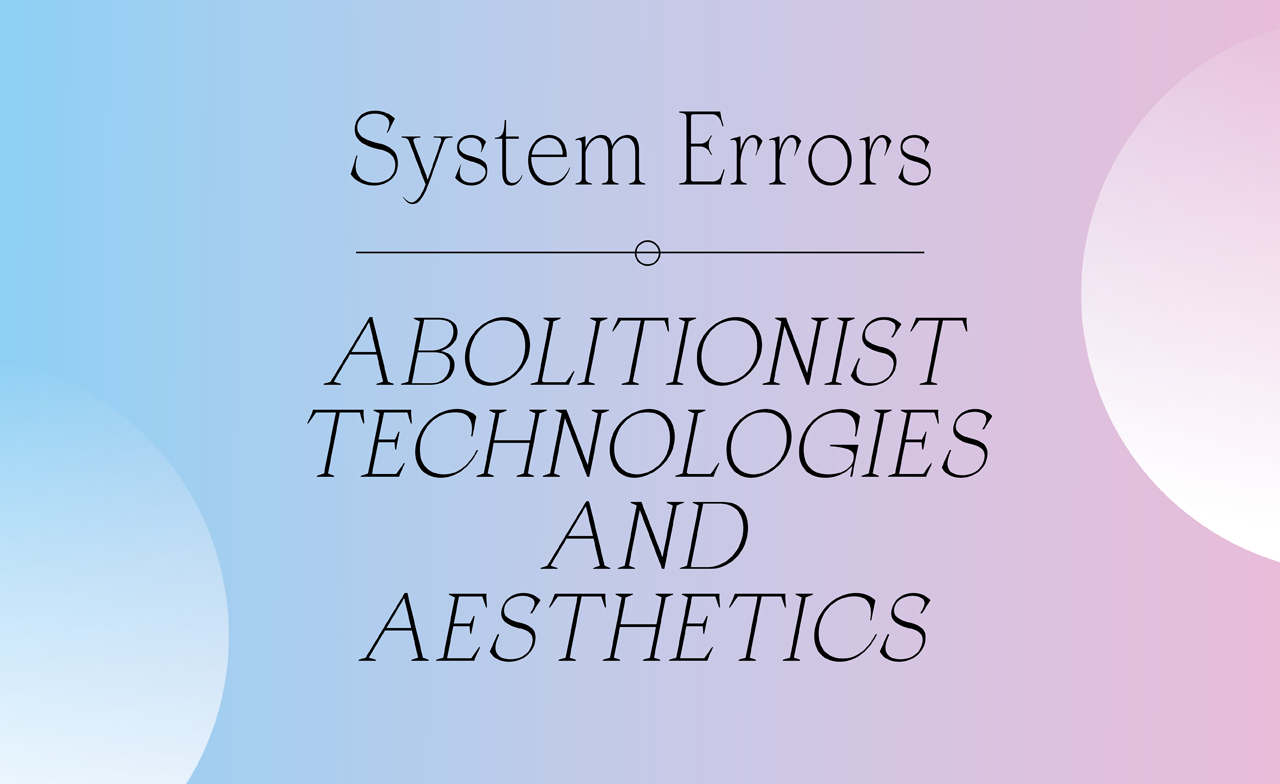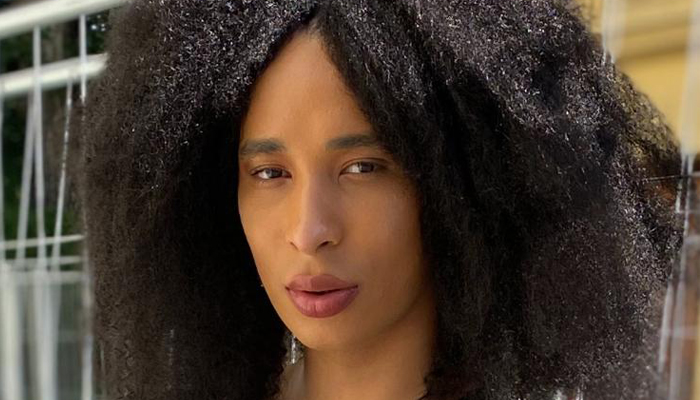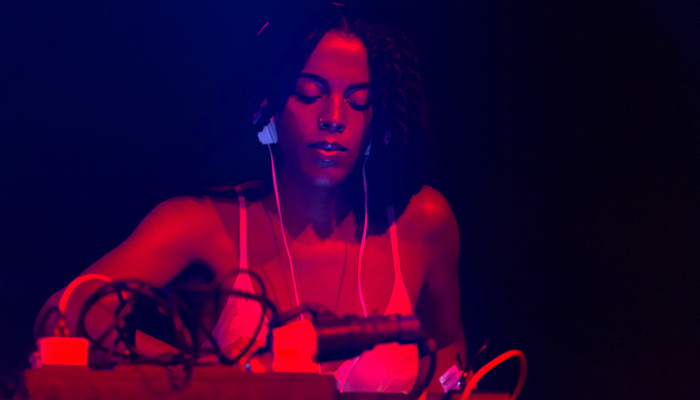System Errors: Abolitionist Technologies and Aesthetics
System Errors: Abolitionist Technologies and Aesthetics
A panel exploring the radical potential of technologies through fugitivity and opacity: their ability to obscure, to make it impossible for us to be known, to render us untraceable by every arm of the state even under the all-consuming spectre of surveillance capital.
ReadA panel discussion with American Artist, Danielle Brathwaite-Shirley and Juliana Huxtable, chaired by Legacy Russell. Subtitles to accompany the video will be available soon. A Google doc that collectively collated links and references made during the public event is available here.
The radical potential of technologies lies in fugitivity and opacity: their ability to obscure, to make it impossible for us to be known, to render us untraceable by every arm of the state even under the all-consuming spectre of surveillance capital. Within the current matrix of violent governance, the abolitionist project is about gaming the algorithm: rewriting its rules and scrambling the encoded binary. Glitch feminism is one such method. It recognises the glitch as a necessary erratum, a site of positive departure that enables the creation of new worlds.
With curator and writer Legacy Russell in the chair, artists American Artist, Danielle Brathwaite-Shirley and Juliana Huxtable, discuss their artistic practices through an abolitionist lens, considering questions around policing, the body and the digital image. How does art engaging with queerness, digital media and performance intersect with an abolitionist aesthetics of liberated blackness? Can networked virtual life, video games and radical image-making be tools for agency and resistance against the techno-industrial complex?
American Artist‘s work considers black labour and visibility within networked life. Their practice makes use of video, installation, new media, and writing. Artist is a resident of Red Bull Arts Detroit and a 2018-2019 recipient of the Queens Museum Jerome Foundation Fellowship. They are a former resident of EYEBEAM and completed the Whitney Independent Study program as an artist in 2017. They have exhibited at the Museum of African Diaspora, San Francisco; the Studio Museum in Harlem; Museum of Contemporary Art Chicago, and Koenig & Clinton, New York. Their work has been featured in the New York Times, Artforum, and Huffington Post. They have published writing in The New Inquiry and Art21. Artist is a part-time faculty at The New School, New York.
Danielle Brathwaite-Shirley is an artist working predominantly in digital media (animation, sound and video games) to communicate the experiences of being a Black Trans person. Their practice focuses on recording the lives of Black Trans people, intertwining lived experience with fiction to imaginatively retell Trans stories. Spurred on by a desire to record the “History of Trans people both living and past” their work can often be seen as an archive where Black Trans people are stored for the future. Throughout history, Black queer and Trans people have been erased from the archives. Because of this it is necessary not only to archive our existence, but also the many creative narratives we have used and continue to use to share our experiences. An online component of their work can often be found at daniellebrathwaiteshirley.com.
Using the structures of music as mediums in her multi-media universe, Juliana Huxtable is a DJ and musician singular in her approach. Where her visual art and poetry navigate the complexity of desire in a life increasingly mediated by technology, her music utilizes the sounds of technology itself to construct parallel realities to be inhabited and embodied in rhythm and harmonic tableaux. Her sets skillfully deploy the notion of sampling, and re-blogging as DJ strategies, ecstatically mixing an array of influences that frolic at the boundary of genre-intuition and experimentation. At once an assertion of freedom and an ode to the evolutionary structure of electronic music subcultures, she aspires to the sublime in what can often only be described as witchcraft behind the decks; seance from the stage.
Legacy Russell is a writer and curator. She is the Associate Curator of Exhibitions at The Studio Museum in Harlem. Russell’s ongoing academic work and research focuses on gender, performance, digital selfdom, internet idolatry, and new media ritual. She is the recipient of the Thoma Foundation 2019 Arts Writing Award in Digital Art and a 2020 Rauschenberg Residency Fellow. Her first book, Glitch Feminism, is forthcoming from Verso Books in Fall 2020. For more, check out her Instagram @ellerustle and visit: www.legacyrussell.com.
Documentation
